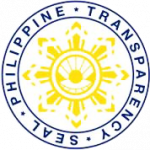- GOVPH
- About BOC
- Issuances
- Aduana Library
- Memoranda
- Memoranda for Reference Values
- Customs Administrative Order (CAO)
- Customs Administrative Order (CAO) 2025
- CUSTOMS ADMINISTRATIVE ORDER (CAO) 2024
- Customs Administrative Order (CAO) 2023
- Customs Administrative Order (CAO) 2022
- Customs Administrative Order (CAO) 2021
- Customs Administrative Order (CAO) 2020
- Customs Administrative Order (CAO) 2019
- Customs Administrative Order (CAO) 2018 and Older
- Customs Memorandum Order (CMO)
- Customs Memorandum Circular (CMC)
- Customs Memorandum Circular (CMC) 2025
- Customs Memorandum Circular (CMC) 2024
- Customs Memorandum Circular (CMC) 2023
- Customs Memorandum Circular (CMC) 2022
- Customs Memorandum Circular (CMC) 2021
- Customs Memorandum Circular (CMC) 2020
- Customs Memorandum Circular (CMC) 2019
- Customs Memorandum Circular (CMC) 2018 and Older
- Customs Special Order (CSO)
- Custom Training Circular (CTC)
- Joint Memorandum Orders (JMO)
- Trade
- News Room
- Port Updates
- HR Corner
- Quicklinks
- Infographics
- Bureau of Customs Webinar
- Auction and Sales
- Bid Opportunities
- Invitation to Bid / Request for Quotation / Invitation for Negotiated Procurement / Notice to Conduct Direct Contracting – 2023
- Invitation to Bid / Request for Quotation / Invitation for Negotiated Procurement / Notice to Conduct Direct Contracting – 2022
- Invitation to Bid / Request for Quotation / Invitation for Negotiated Procurement / Notice to Conduct Direct Contracting – 2021
- Invitation to Bid / Request for Quotation / Invitation for Negotiated Procurement / Notice to Conduct Direct Contracting – 2020
- Invitation to Bid / Request for Quotation / Invitation for Negotiated Procurement / Notice to Conduct Direct Contracting – 2019
- Invitation to Bid / Request for Quotation / Invitation for Negotiated Procurement / Notice to Conduct Direct Contracting
- Bid Documents
- Bid Supplement
- Summary of Awarded Contracts
- Summary of Contracts Awarded 2023
- Summary of Contracts Awarded 2022
- Summary of Contracts Awarded 2021
- Summary of Contracts Awarded 2020
- Summary of Contracts Awarded 2019
- Summary of Contracts Awarded 2018
- Summary of Contracts Awarded 2017
- Summary of Contracts Awarded 2016
- Summary of Contracts Awarded 2015
- Summary of Contracts Awarded 2014
- Summary of Contracts Awarded 2013
- Annual Procurement Plan
- Customs Knowledge Resources
- References
- Gender Equality and Diversity
- Philippine National Trade Repository
- Philippine Tariff Finder
- Authorized Economic Operator

WHAT IS A SCAM?
A scam is a deceptive scheme or trick used by unscrupulous individuals to cheat a victim out of something, especially money.
How Does a Love Scam Work?
- A Scammer creates a fake profile to court victims online.
- The relationship and trust between the scammer and victim develop at a fast pace.
- The scammer asks his/her victim for money and will vanish after receiving it.
HOW CAN I SPOT A SCAM?
Scammers may PRETEND to be someone you know.
They may pose as a family member, a friend, a lover, or a government employee. They may even use names of employees from the Bureau of Customs (BOC) to lure victims.
Scammers will say that a PACKAGE IS ARRIVING for you.
- They will say that you are in trouble with the BOC, and they will ask you to pay a certain amount of money to resolve the issue.
- They will say that someone from the airport is holding your package, or the sender is being held at the BOC.
- Scammers will ask you to keep the a transaction secret.
- Most often, they will pretend to be your LOVER and manipulate your EMOTIONS
- Scammers will PRESSURE you to act immediately.
- They will inform you that it is urgent; forcing you to act before having the time to think.
- They will send fake images and tracking details that are searchable in their fabricated websites to deceive you that there is a package arriving for you.
- They will threaten to sue and have you arrested.
- Scammers will tell you to PAY through unauthorized channels
They will insist that you pay by sending money through money transfer/money remittances companies such as GCASH, or via personal BANK accounts.
HOW CAN I AVOID BEING SCAMMED?
- Never provide any personal information to anyone you virtually meet on social media or dating apps.
- Never send a payment to someone you do not personally know.
- Always ask for valid receipts, tracking numbers of packages, company names, and other documents to check with the BOC.
- If still in doubt, you may send us an email at boc.cares@customs.gov.ph or visit the nearest BUREA OF CUSTOMS office in your area.
You may use these links to verify:
For PARCELs https://parceltracking.customs.gov.ph/kiosk.php
For COURIERs https://www.dti.gov.ph/konsyumer/accredited-seafreight-forwarders/
A FRIENDLY REMINDER FROM THE BOC:
The Bureau of Customs is the sole authority in assessing duties, taxes, and other charges on all parcels. A parcel (<- for verification pls) may only be paid or collected through Accredited Agent Banks (AAB), Postal Money Order (Postal Office), or directly to a BOC Cashier upon pick up or prior to its delivery.
TO REPORT or FILE A COMPLAINT:
Coordinate with the following agencies:
🚨 𝗣𝗡𝗣’𝘀 𝗔𝗻𝘁𝗶–𝗖𝘆𝗯𝗲𝗿𝗰𝗿𝗶𝗺𝗲 𝗚𝗿𝗼𝘂𝗽 🚨
OFFICE ADDRESS:
Anti-Cybercrime Group Building
Col. Lagman St., Bagong Lipunan Camp Crame,
Quezon City, Metro Manila, Philippines 1100
CONTACT NUMBERS:
Complaint Action Center / Hotline: 09985988116
Tel: +63 (02) 414-1560
Fax: +63 (02) 414-2199
Facebook: https://www.facebook.com/anticybercrimegroup
Email: pnp.anticybercrimegroup@gmail.com
🚨 𝗗𝗲𝗽𝗮𝗿𝘁𝗺𝗲𝗻𝘁 𝗼𝗳 𝗝𝘂𝘀𝘁𝗶𝗰𝗲 – 𝗢𝗳𝗳𝗶𝗰𝗲 𝗼𝗳 𝘁𝗵𝗲 𝗖𝘆𝗯𝗲𝗿𝗰𝗿𝗶𝗺𝗲 🚨
OFFICE ADDRESS: Office of the Cybercrime (OOC) 3rd Floor, De Las Alas Bldg. Department of Justice P. Faura St., Ermita Manila
CONTACT DETAILS:
Telephone Number: 526-2747/521-8345
DOJ Website: www.doj.gov.ph
E-mail: cybercrime@doj.gov.ph
ABOUT GOVPH
All content is in the public domain unless otherwise stated.






